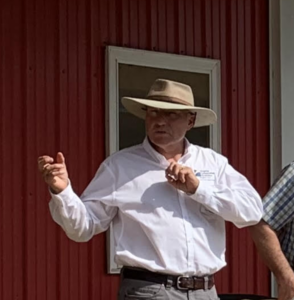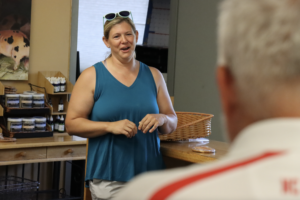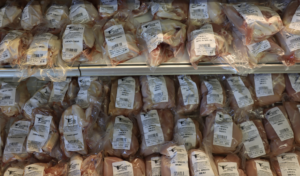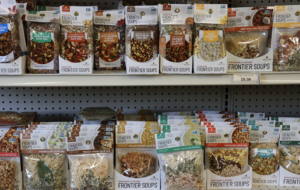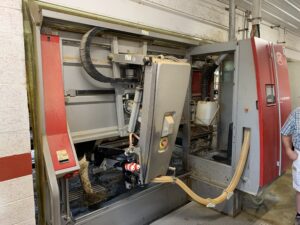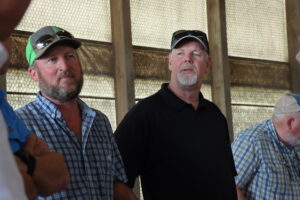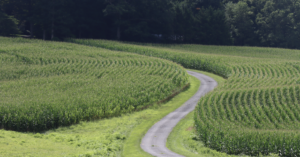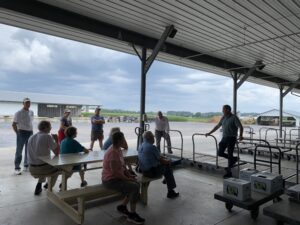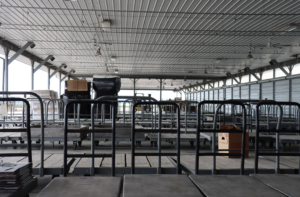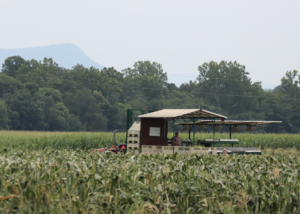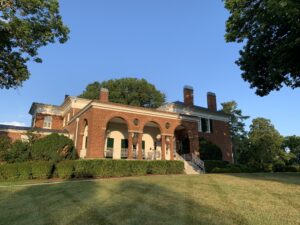Farm Management: NCSFMRA Members Tour Shenandoah Valley Agriculture
go.ncsu.edu/readext?882820
en Español / em Português
El inglés es el idioma de control de esta página. En la medida en que haya algún conflicto entre la traducción al inglés y la traducción, el inglés prevalece.
Al hacer clic en el enlace de traducción se activa un servicio de traducción gratuito para convertir la página al español. Al igual que con cualquier traducción por Internet, la conversión no es sensible al contexto y puede que no traduzca el texto en su significado original. NC State Extension no garantiza la exactitud del texto traducido. Por favor, tenga en cuenta que algunas aplicaciones y/o servicios pueden no funcionar como se espera cuando se traducen.
Português
Inglês é o idioma de controle desta página. Na medida que haja algum conflito entre o texto original em Inglês e a tradução, o Inglês prevalece.
Ao clicar no link de tradução, um serviço gratuito de tradução será ativado para converter a página para o Português. Como em qualquer tradução pela internet, a conversão não é sensivel ao contexto e pode não ocorrer a tradução para o significado orginal. O serviço de Extensão da Carolina do Norte (NC State Extension) não garante a exatidão do texto traduzido. Por favor, observe que algumas funções ou serviços podem não funcionar como esperado após a tradução.
English
English is the controlling language of this page. To the extent there is any conflict between the English text and the translation, English controls.
Clicking on the translation link activates a free translation service to convert the page to Spanish. As with any Internet translation, the conversion is not context-sensitive and may not translate the text to its original meaning. NC State Extension does not guarantee the accuracy of the translated text. Please note that some applications and/or services may not function as expected when translated.
Collapse ▲In the last week of July, members of the North Carolina Society of Farm Managers and Rural Appraisers (NCSFMRA) embarked on their bi-annual “out of state” summer tour, this year to the Shenandoah Valley of Virginia. Here is the brief report.
About the Tour
The NCSFMRA tour is organized for each summer, with alternating years in North Carolina and the next out-of -state. Last year (after a 2020 Covid hiatus) the summer tour focused on North Carolina’s High Country, centering out of West Jefferson, North Carolina. This year’s tour followed an itinerary of agricultural operations and infrastructure that illustrated the adaptation of Shenandoah Valley (Virginia) agriculture to challenges such
as loss of farmland to residential development, shifting poultry integration systems, farm succession, as well as the importance of local food systems. The itinerary and tour was led by Mr. Tom Stanley, Farm Business Management Agent with Virginia Tech Cooperative Extension. Having worked in the Valley for over 20 years, his itinerary and route narration offered tour participants a broad view of a shifting agricultural production landscape and its promising adaptations.
Integrated Local Beef Sales
The first stop on the tour was Cattlemen’s Market, a local foods store in Lexington, Virginia that demonstrates how vertical integration and emphasis on local food distribution can serve farm succession. The market, owned and operated by the Potter family, serves as a direct and value-added outlet for beef produced by their seventh-generation family farm. Ms. Rosealea Potter was kind enough to narrate how the Potter family, led by her father-in-law Charlie Jr., were able to acquire and
re-open a disused local abattoir – Donald’s Meat Processing. Placed under USDA inspection in 2009, the facility would continue to serve as a critical infrastructure link in the area beef production economy. Importantly, the facility could also process beef from the operation begun by her and her husband Chas. Once in control of their own production, processing, and then eventually distribution, the Potter family was able to establish their statewide brand Buffalo Creek Beef in homage to the waterway along where the Potter family first started farming in the late 1800s.
While the operation was able to market fresh beef directly from a storefront at the processing facility, they lacked the facilities for cooking and curing. Hence the family opened Cattlemen’s Market to expand the range of value-added opportunities for their own beef, while opening an outlet for products of other local producers in the Valley and beyond. According
to Rosealea, “With local foods, there is always a distribution issue, but we were fortunate to have branded our beef through a wholesale business with distribution throughout Virginia, which allowed us to identify other local products to bring back and distribute through Cattlemen’s Market.” She added that the identification of products as “local” has resonated more than other attributes (e.g. organic) with their retail customers and allowed them to grow their retail customer base.
Dairy Automation
The next stop on the tour was Rock Bottom Dairy, a dairy and poultry farm operated by Robert and Stephanie Whipple. The dairy, located in northern Rockbridge County, is a vivid demonstration of a transition from human labor to robotic automation, and is striking in both efficiency and relative autonomy offered to both the operators and their cows. The automation allows the cows themselves to choose when they want to be milked, saving the need to drive the herd from pasture to barn. The cows simply line up, step on a platform, and the robot does the rest: teats are first cleaned, then suction attaches, falling off when the milk stops coming, and suction is then cleaned for the next waiting cow.
Automation has allowed the Whipples to save on full time labor expense, a major factor in being able to operate at a relatively small scale (120 head). The robotic milker – designed and manufactured in the Netherlands – is able to operate around the clock,
and collects data on each cow in the herd as she matriculates through the milk stall. Such data – read from a collar with a pedometer – includes tracking increased steps, which indicates a cow is in heat. These cows are automatically gate-sorted by the robot for breeding, and the practice has resulted in increased rates of pregnancy. One labor trade-off noted by Stephanie and Robert is the increased computer knowledge required of employees. And while the robots can alert the operator of problems around the clock, they still offer some measure of freedom. “We might get an alert while we are out (at a restaurant) to dinner,” said Stephanie. “But at least we are out to dinner!”
Another farm management feature of the Whipple’s farm is their primary reliance on custom planting and harvesting services, which eliminates expense and debt on equipment while allowing them to focus more on herd welfare.
Mennonite Produce Auction
Following a lunch stop at the Pike Valley Farm Market, the tour headed further north into an area of the valley heavily populated with farms owned and operated by members of the Old Order Mennonite church community. This part of the Valley offered picturesque views of relatively small dairy farms (many still using vertical silos), but also vividly displayed farmland loss to residential development pressure from nearby Harrisonburg. Many of the operations have become more diversified, some dairies have transitioned to organic production with Organic Valley, and many host integrated poultry and turkey production (the latter with a grower-owned coop).
The tour’s third stop was the Shenandoah Valley Produce Auction (SVPA), Virginia’s only produce auction which developed out of the need in the Mennonite community to develop alternative income streams, largely in response to reduced access to land for field crops due to development pressure. Though the actual auction happens on Tuesdays (we visited on a Monday) the group got a thorough narrative of auction operations from Jeff Heatwole, the long-time manager of SVPA.
About 100 produce auctions like SVPA are located across the country, nearly all of them in Amish and Mennonite Communities. According to Tom Stanley with Virginia Cooperative Extension, the wholesale revenue model of such auctions is sustainable to communities of families dependent on fewer material inputs. Indeed, the initial Old Order Mennonite founders of the market took a trip – organized in part by Virginia Cooperative Extension – to Pennsylvania Amish country to observe produce auction operations there, and determined the model could work in the Rockingham County area of the Valley. The SVPA held its first auction in 2005, and has grown to occupy a covered space of 20,000 square feet. The
The auction supplies numerous wholesale customers including restaurants, distributors and retail produce outlets, including the multitude of road-side produce stands along Interstate 81 through the valley. Early in the season, the auction floor is dominated by flowers and floral arrangements, as well as some product brought in from out of the region, such as cantaloupes and tomatoes. As local fruits and vegetables come into season, they dominate the auction floor from June through Thanksgiving. The auction is designed for wholesale-only customers with minimum lot bidding to keep retail customers from clogging the fast-paced operation. Jeff Heatwole described the auction as very fast-paced: “Most buyers will move along from palette to palette with their team loading purchases as they’re closed.” He noted that the speed of the auction has been clocked at 18 seconds between each transaction.
SVPA holds auctions on Tuesdays and Thursdays at 9:30 a.m. April through September, then on Tuesdays only until Thanksgiving. SVPA also holds an annual equipment auction, this year to be held on November 2d, 2022.
Birthplace of the McCormick Reaper
Prior to returning to Lexington, the tour bus stopped by the Shenandoah Valley Agriculture Research Center. Opened in 1956, the research station conducts pasture-based livestock research on Walnut Grove Farm, the ancestral home farm of one Cyrus McCormick, inventor of the first commercial grain reaper whose manufacture would eventually grow to become the International Harvester Company. McCormick’s descendants donated the 620 acre farm to Virginia Tech in 1954. The research farm facilities include a “bank barn” historically common to the sloping topography of the Valley.
The Cyrus McCormick historic homestead consists of a number of original buildings, including a grist mill and the blacksmith shop where McCormick crafted the first reaper. There is also a display of models of various reaper types built during the early years of mechanized reaping.
A Stay in Historic Lexington, VA
The tour wrapped up with a nice dinner at the historic Southern Inn in downtown Lexington, Virginia. The group was also fortunate to stay at historic Col Alto, an antebellum mansion and grounds converted to a hotel operated by Hampton Inn and adjacent to downtown Lexington, Virginia. (On a personal note: while studying for the Virginia bar exam at Washington & Lee University, the author lived in the one room servant quarters in 1992 before Col Alto was converted to its current use; the room is now a luxury suite!)
And though not on the tour itinerary, some tour participants took some time on their journeys back to North Carolina to visit the famous – and truly impressive – rock formation at Natural Bridge State Park just south of Lexington.
About NCSFMRA
The North Carolina Society of Farm Managers and Rural Appraisers is a not-for-profit organization hosted by the NC State Department of Agriculture and Resource Economics (ARE), and includes members from academia and the private sector involved in farm management and appraisal of rural properties. The NCSFMRA has an endowment providing a scholarship each year to a selected Agribusiness Management major. In addition to the annual summer tour, the NCSFMRA also offers a winter seminar and luncheon with a line-up of speakers offering updates on agribusiness matters including labor, forestry, law and taxes, and updates on the farm and general economy. For more information on NCSFMRA, contact Robert Andrew Branan at rabrana2@ncsu.edu.



